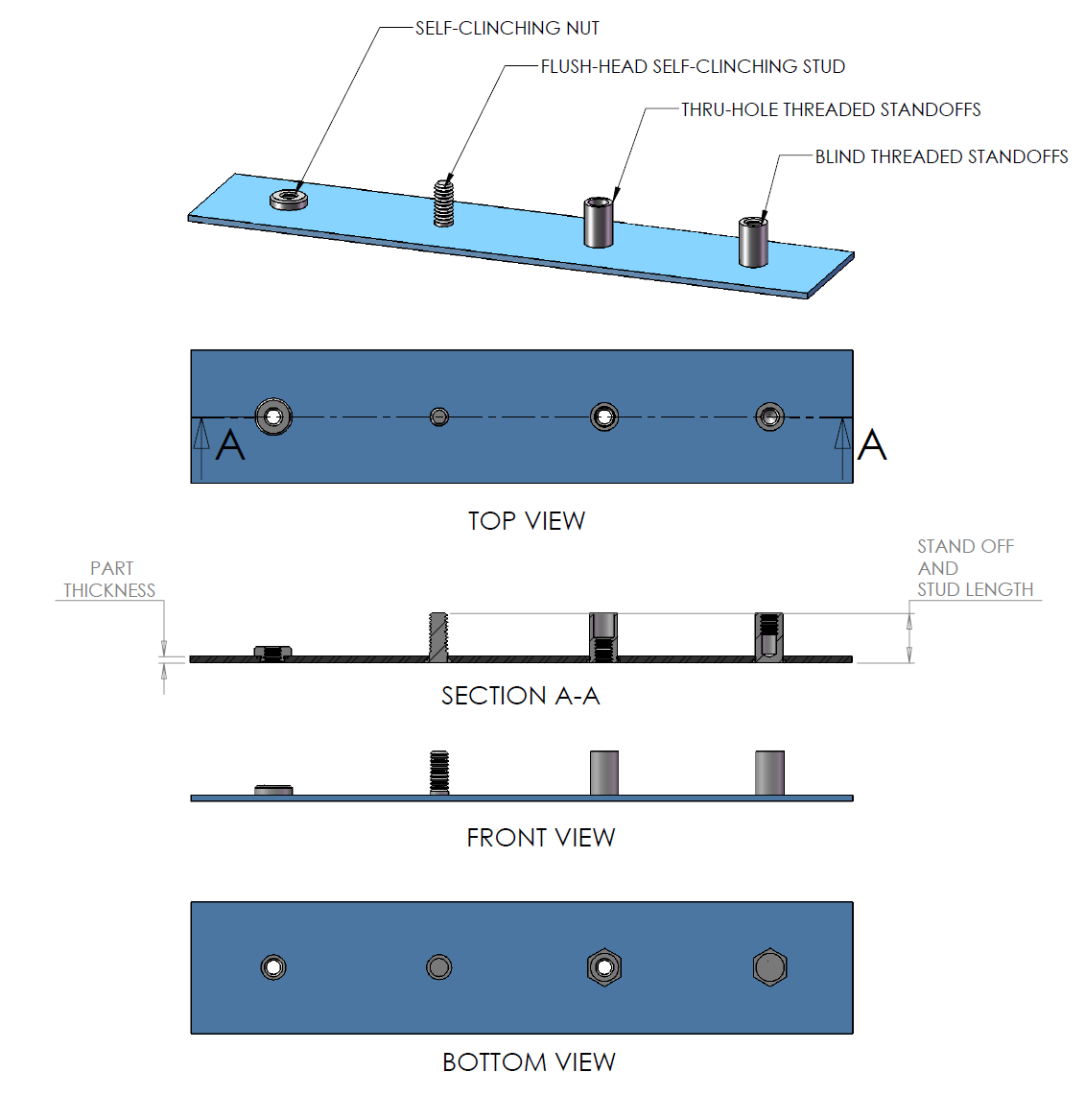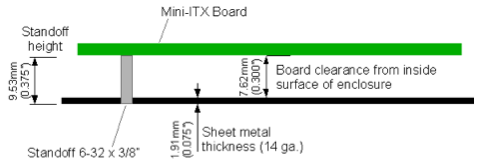Selecting height of self-clinching fasteners based on material thickness
From Protocase Designer Documentation
Self-clinching fasteners are threaded nuts, studs, or standoffs that are mechanically pressed into sheet metal to provide solid fastening points. Nuts can be used to accept bolts, standoffs can be inserted for mounting circuit boards and studs can be used for mounting connectors.
- Self-clinching standoffs and studs extend through the sheet metal from the outside face. Therefore, when selecting the height of self-clinching fasteners, you must consider the material thickness to ensure there is sufficient clearance between your component and the enclosure.
- To calculate the actual clearance between a circuit board and the enclosure, you must subtract the sheet metal thickness from the height of the self-clinching fastener.
- For example, a 0.375" (9.53mm) standoff, mounted in a 14 gauge (0.075") enclosure wall, will provide only 0.300" (7.62mm) clearance to a component, and less if the metal is thicker.
Protocase offers a wide variety of self-clinching fasteners for use in your enclosure designs.
See Also:

